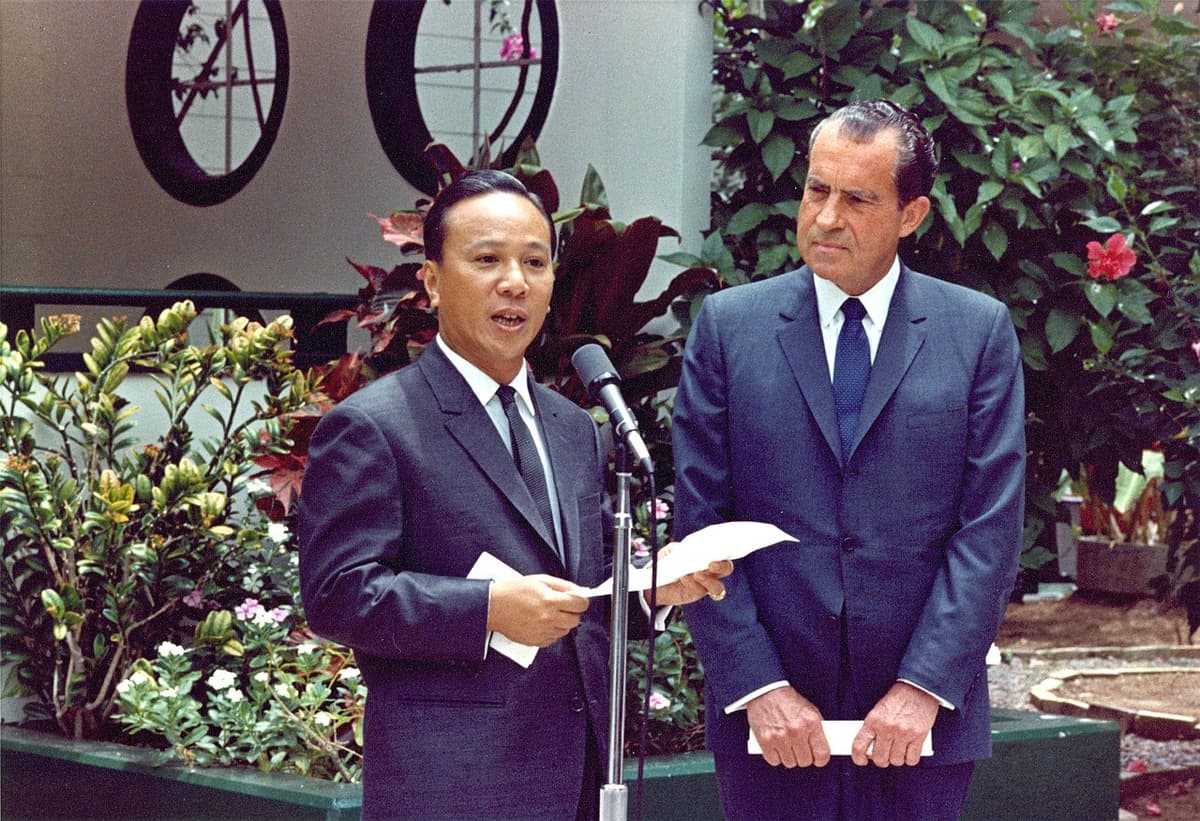A Recipe for Defeat in Ukraine
More than 50 years after our betrayal of Indochina America prepares to halt ammunition supplies to another ally in the middle of a fight.

“Brutality is nothing,” President Nixon told his national security adviser, Henry Kissinger. “You have never seen it if this son-of-a-bitch doesn’t go along, believe me.” The son of a bitch was the president of South Vietnam, Ngyuen Van Thieu, our wartime ally and the Volodymyr Zelensky of his day. Nixon was about to have General Alexander Haig deliver a letter insisting that Thieu sign at Paris a peace deal with the North Vietnamese communists.
We’re thinking of that moment as President Trump prepares this evening to speak to Congress following his cutoff of aid to Kyiv. We’re among millions of Americans who will always look at what is happening now to Ukraine through the lens of Vietnam. Nixon did send his letter. It warned the doughty leader of the free Vietnamese that America would be signing the agreement with the enemy. “I will do so, if necessary, alone,” Nixon wrote* to Thieu.
After some more threats from Washington, South Vietnam did sign the peace agreement in Paris, leaving the communists holding territory in the south. That was how Vietnam lost its freedom. While the ink was drying on the pact, the North Vietnamese, backed by the Soviet Union, were violating the terms in every respect. In little more than two years, communist armies would sweep out of the jungle and put paid to the war that had claimed 58,000 American lives.
What stays with us, we wrote a decade ago, is the absence of ruth on the part of Congress. It was Congress, controlled by the Democratic Party, that, in a series of votes in 1974 and 1975, forced the abandonment of Vietnam. It was not about bringing our boys home from the war. They were already home. There were no American combat troops in Vietnam when Congress abandoned the country. It was about ensuring a communist victory.
We’ve marked this point several times over the years — not only in respect of Vietnam but in respect of Iraq and more recently Afghanistan. In all three cases, we had basically won the military part of the war. What was being tested was the commitment and character of Congress. It failed. And we’ve come to the view that the failure was baked into the beginning of those wars, upon which we entered without full legislative action.
Meaning, without a proper declaration of war binding Congress. In Vietnam it was the Tonkin Gulf Resolution. In Iraq, it was the authorization to use military force on which we “went to ground.” In Afghanistan it was the authorization to use military force in the global war on terror. They were all written on flimsy, so to speak, and in disappearing ink. What a contrast to a proper declaration of war enacted by the Congress.
Feature what was passed on December 8, 1941, against the Japanese empire. It declared that the president was authorized and — mark it — “directed” to employ the “entire naval and military forces of the United States and the resources of the Government to carry on war against the Imperial Government of Japan” and “to bring the conflict to a successful termination, all the resources of the country are hereby pledged by the Congress of the United States.”
To those who say that such a standard cannot be met in the modern age, we say look at the long train of defeat in the years since World War II. Half of Korea is held by the communists, free Vietnam is gone, Iraq is in a kind of limbo, and we surrendered Afghanistan to the Taliban. Is something similar now going to happen to Ukraine? And if it does, how is America going to learn the wisdom that undeclared war and halfway measures are a recipe for defeat?
_________
* As related in Henry Kissinger’s memoir “The White House Years.”

